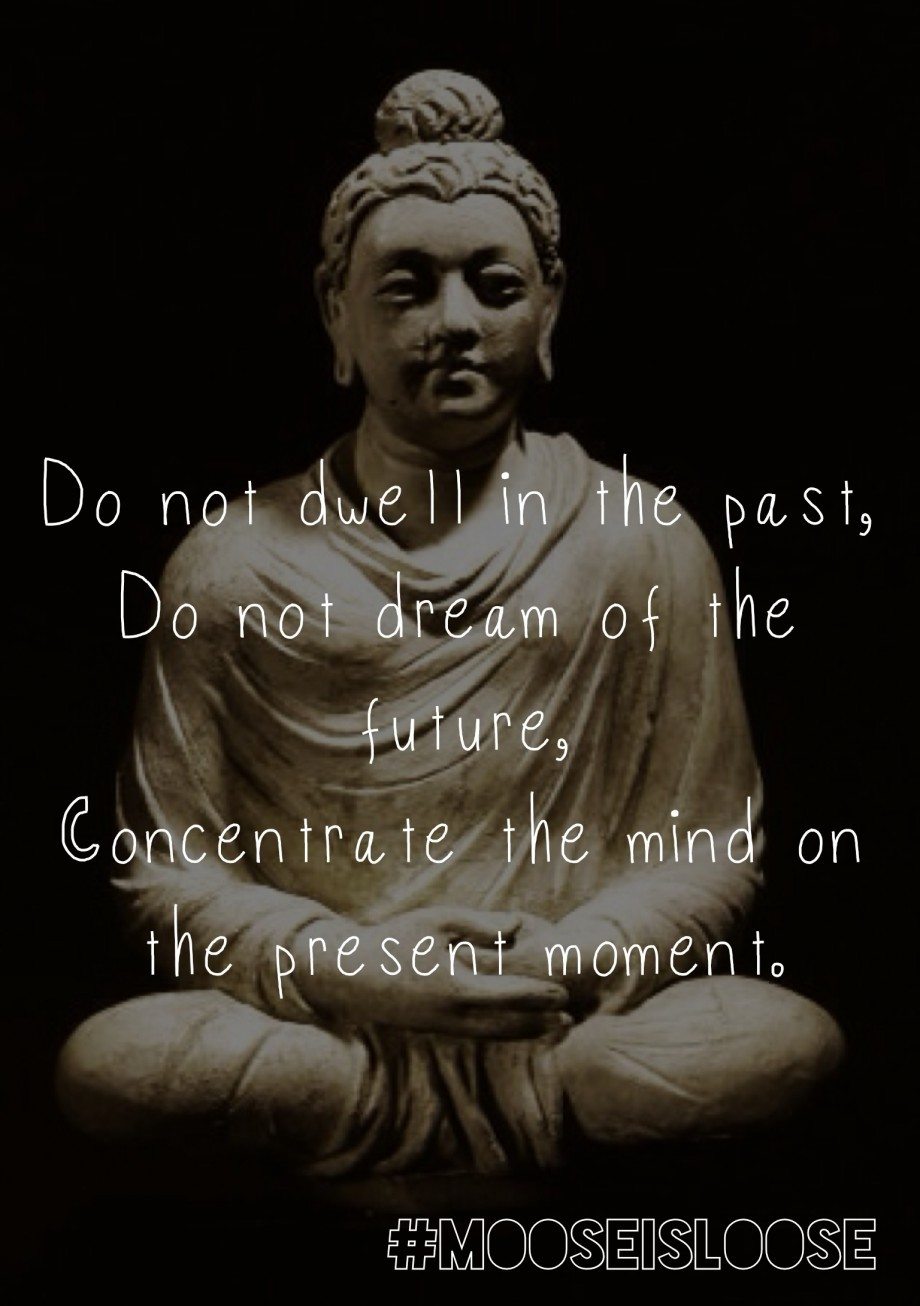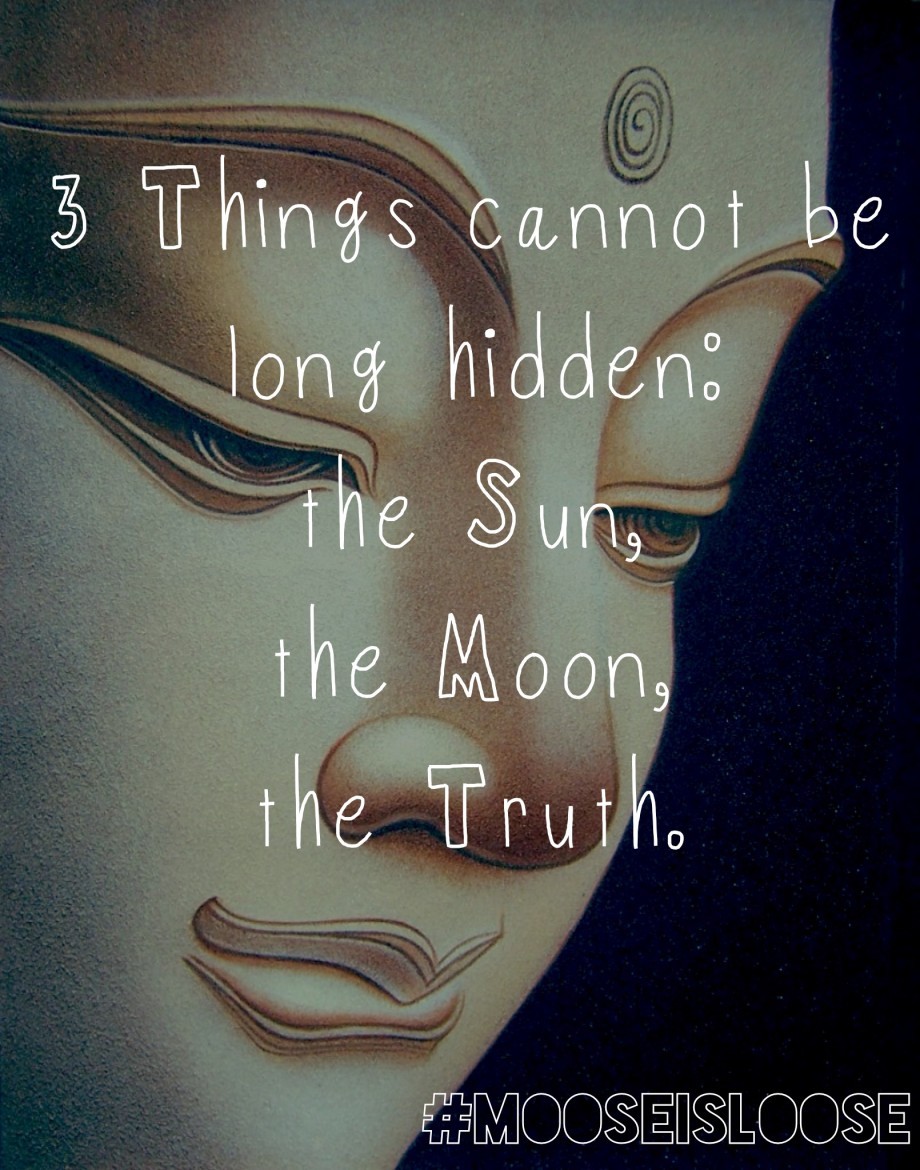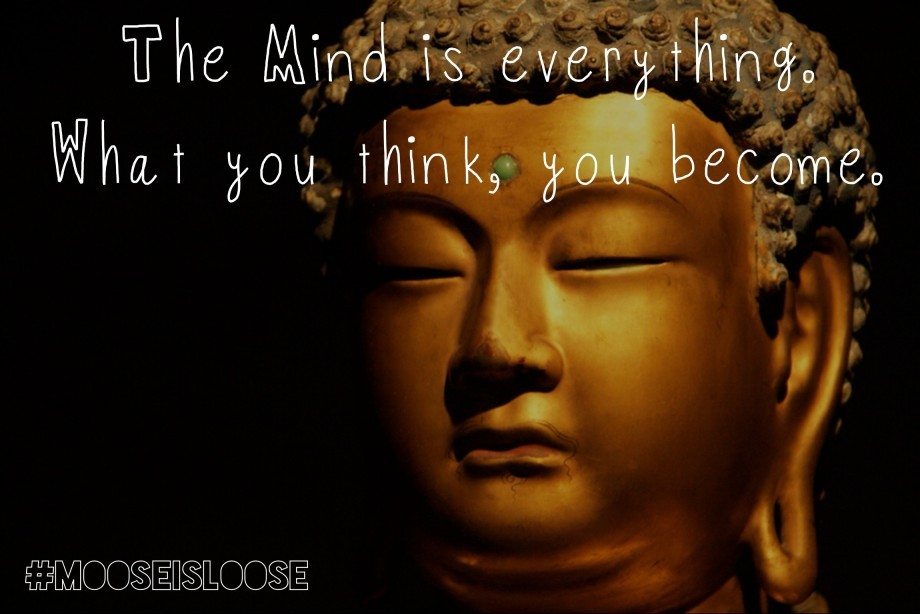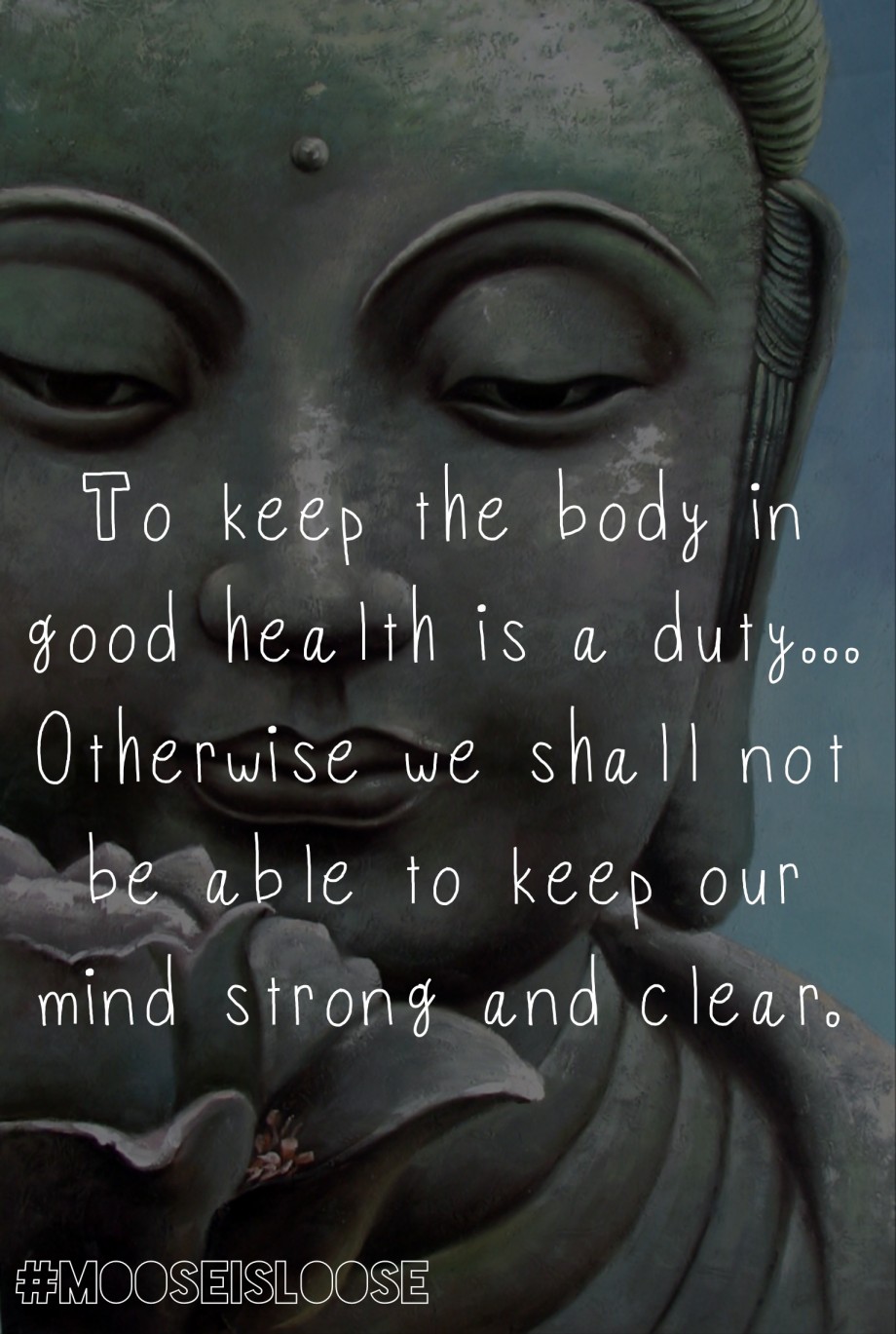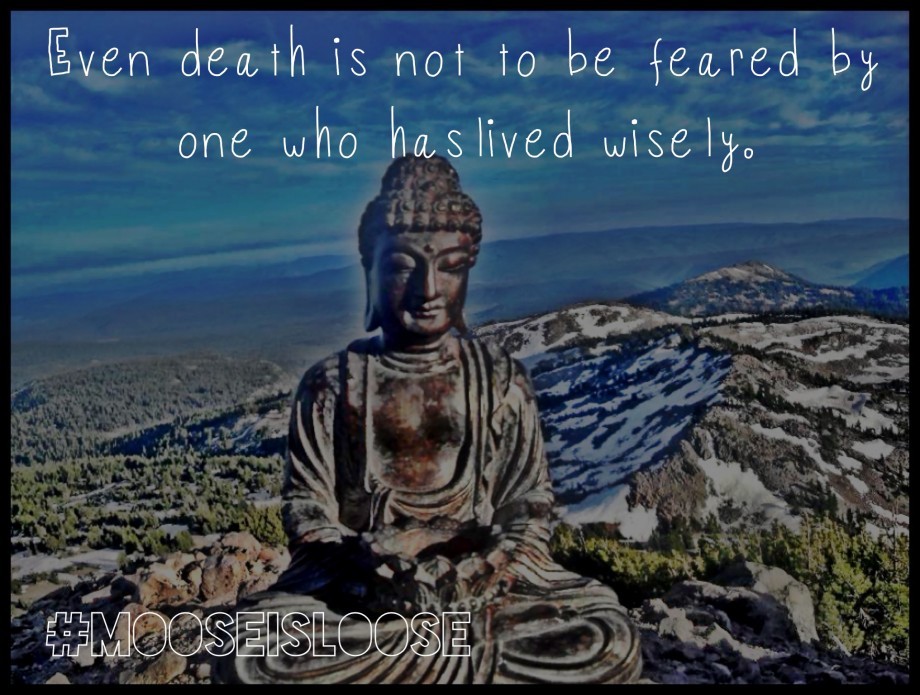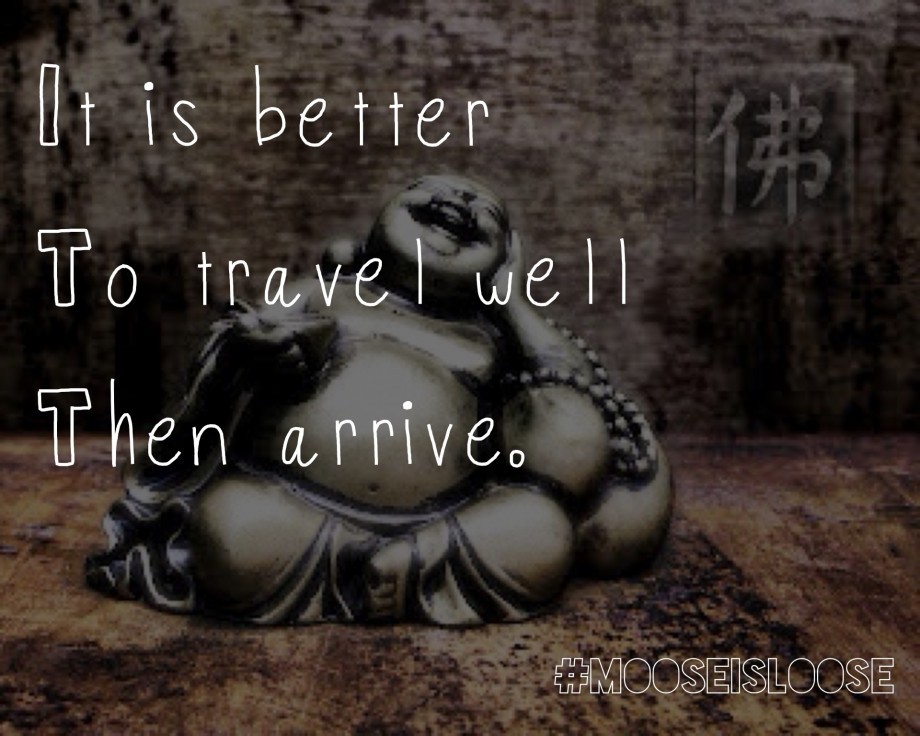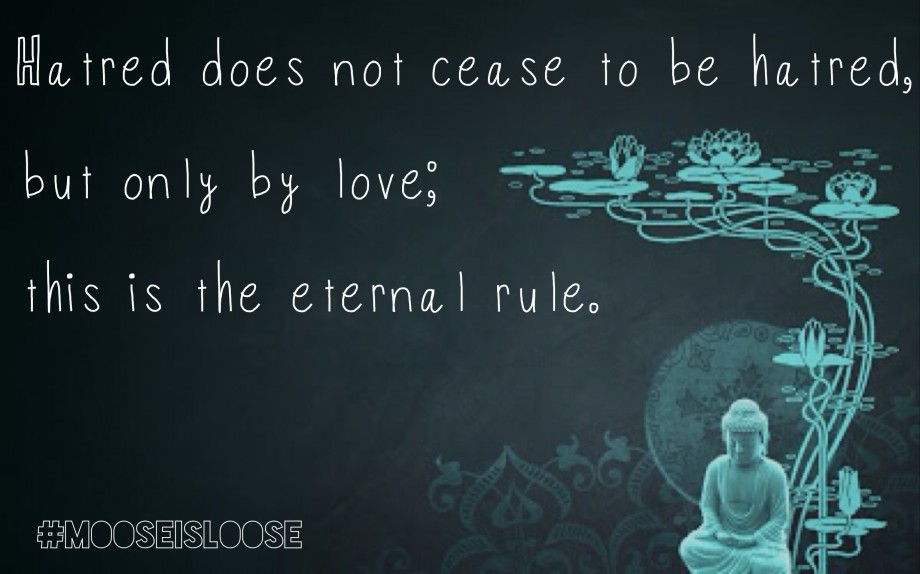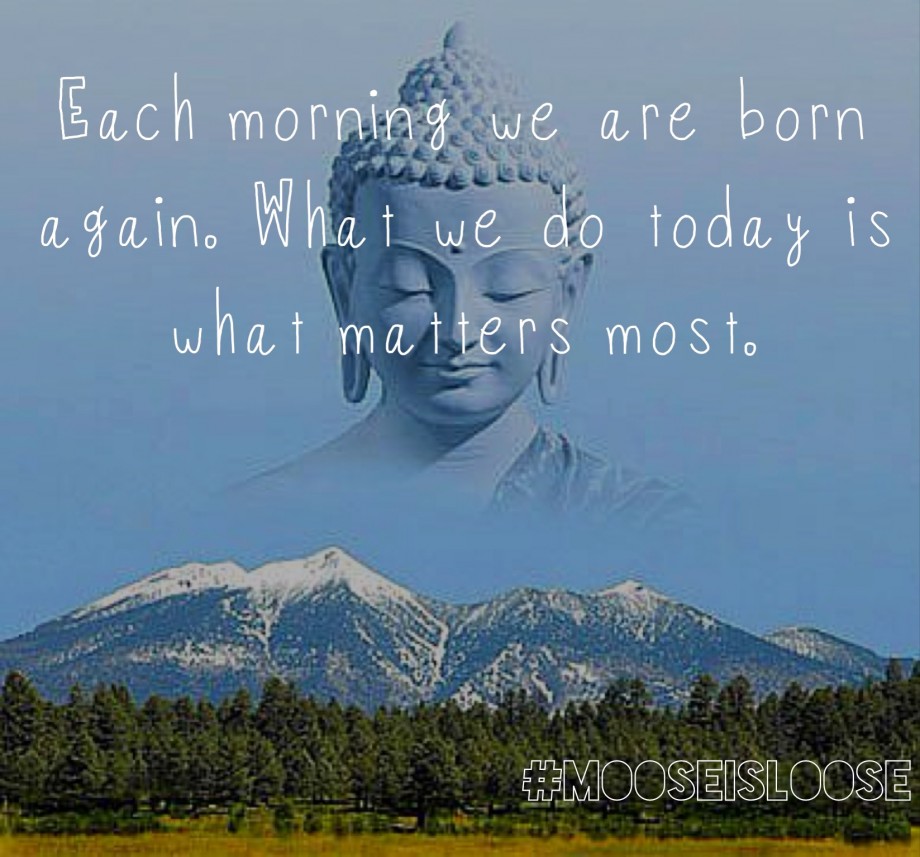10 Awesome Buddha quotes that will inspire and motivate you
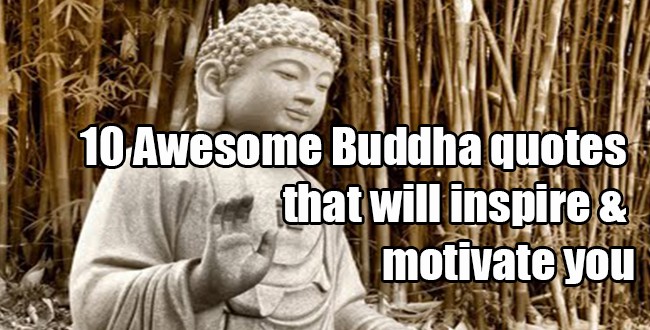
 He's known by many names to many people: Siddhārtha Gautama, Gautama Buddha, Fat Buddha, Big Buddha, Laughing Buddha, Agama Buddha, Lord Buddha and Little Buddha to name just a few. But to me, he's just plain Buddha. With nearly 550 million Buddhists in the world today, Buddhism
is considered one of the fastest growing religions.
He's known by many names to many people: Siddhārtha Gautama, Gautama Buddha, Fat Buddha, Big Buddha, Laughing Buddha, Agama Buddha, Lord Buddha and Little Buddha to name just a few. But to me, he's just plain Buddha. With nearly 550 million Buddhists in the world today, Buddhism
is considered one of the fastest growing religions.My first introduction to some of the concepts of Buddhism was while attending University of British Columbia's philosophy program a long, long time ago. It wasn't required reading but I happened to pickup a copy of Hermann Hesse's Siddhartha from a local used bookstore. At the ripe old age of 19, it was a fitting story for me at that time. I was new to Vancouver, fresh off the plane from Ontario and living on my own for the first time in a new city where I knew no one. The story tells a tale of a man by the name of Siddhartha who sets off on a spiritual journey of self-discovery... it's an awesome read!
Based on many of Buddha's teachings, I've put together 10 of my favorite quotes below. Enjoy!
Exert from Wikipedia : The word Siddhartha is made up of two words in the Sanskrit language, siddha (achieved) + artha (meaning or wealth), which together means "he who has found meaning (of existence)" or "he who has attained his goals".[3] In fact, the Buddha's own name, before his renunciation, was Siddhartha Gautama, Prince of Kapilvastu. In this book, the Buddha is referred to as "Gotama".
Who was Buddha?
Buddha (Siddhārtha Gautama) was a sage who lived somewhere around the years 411 and 400 BCE. Gautama is the "primary figure in Buddhism, and accounts of his life, discourses, and monastic rules are believed by Buddhists to have been summarized after his death and memorized by his followers. Various collections of teachings attributed to him were passed down by oral tradition, and first committed to writing about 400 years later * ".

Buddha means "awakened one" or "the enlightened one." "Buddha" is also used as a title for the first awakened being in an era. In most Buddhist traditions, Siddhartha Gautama is regarded as the Supreme Buddha of our age.
[toggle title="The Basic Tenets of Buddhism" state="close" ]
Basic Tenets of Buddhism
The following is an exert from Bible.ca
The Four Noble Truths
- Suffering: In this world people suffer. What is suffering? Wanting wealth when one is poor, that's suffering. Desiring youth when one is middle aged, that's suffering, Feeling pain but wanting to be free of pain, that's suffering, Having angle food cake delivered for your birthday when one wanted chocolate cake, that's suffering. Having a child become sick and die when one wanted that child be healthy and grow, that's suffering. From the trivial to the profound, suffering is merely the gap between what one wants the world to be and the way it really is. The greater the gap the greater the suffering.
- Causation: Desire, wanting; people want things to be different. People are not satisfied with the way things are. People try to fix things so they are perfect. Improve things so they are better or hold on to old ways because things were better back then. That human trait is the source of suffering.
- Cessation: Each individual creates their own wants and desires. Thus it is possible for people eliminate suffering by eliminating their self created desires. The ability to eliminate suffering is inherent in all, whether one's intelligent and well read or slow and illiterate, One does not need to call upon some god or goddess, teacher or guru, doctor or lawyer to "save" one from suffering.
- Eight fold path: The eight fold path is the method which the Buddha taught his follower's the way to eliminate their desires and wants. Buddha did not teach how to eliminate pain or how to eliminate illness, old age, or death. Nor did he teach about the existence or non-existence of gods, goddesses, or of a supreme being. He only taught about suffering, how people create it, and how it can be eliminated.
The Eight Fold Path
The eight fold path is a way to live one's life. One does not have to master each item before going on to the next, though one can do so if one wishes. One can start in the middle and work towards the end or start at the end and work towards the beginning. One can even work on all of them at once.
- Right Understanding: Just being able to comprehend that there is a difference between what is and what one desires to be is sufficient. But note, there is an infinite regression on the why's and how's things came to be the way they are. That is call karma. The important thing is to see how one creates suffering. Then one will see's how others create suffering, that process deepens understanding and develops compassion.
- Right Thought: Wants and desires are thoughts. One can learns to select those thoughts which alleviate suffering. Thoughts which cause desire and suffering in life are given up for thoughts which bring peace and tranquility. Frivolous thinking can be given up for thinking about what is needed to meet basic necessity's of life.
- Right Speech: Talking can spread ideas and thoughts of wants and desires from one to another. It also re-enforces wants and desires which come to mind. One gives up frivolous talk and gossip. One also gives up hurtful and angry language for they stem from wants and desires. Talk reduces to what's necessary to teach or meet basic needs.
- Right Action: One's actions are also modified. One refrains from harming others and from trivial activities. One acts only to meet their basic needs or, out of compassion, to help other's meet their needs.
- Right Livelihood: How one chooses to live and bring sustenance to their home becomes important. One gives up lying and taking from other's even if it is considered "legal" by society in favor of giving to self and others. Careers, jobs, or hobbies which promote peace and prosperity for all are taken up over those which bring fame or fortune to oneself.
- Right Effort: The Buddha didn't say this would be easy. One should expect lapses, mistakes, and failures to crop up. But over time the ability to follow each element of the eight fold path will get stronger.
- Right Concentration: Concentration is the ability to quickly discard distracting thoughts and views which come into the mind that keep one from being focused on the immediate task at hand. Some schools of Buddhism use meditation to develop and strengthen this skill. Other schools use elaborate ceremonies and chants.
- Right Mindfulness: Mindfulness is the ability to bring oneself back to the task at hand when one's concentration has lapsed. It is also the ability to change focus when new needs or priorities come to one's attention. The various schools of Buddhism use meditation, ceremonies and chanting to develop this skill as well.
[/toggle]
[divider]
My Top 10 Most Favorite Buddha Quotes
